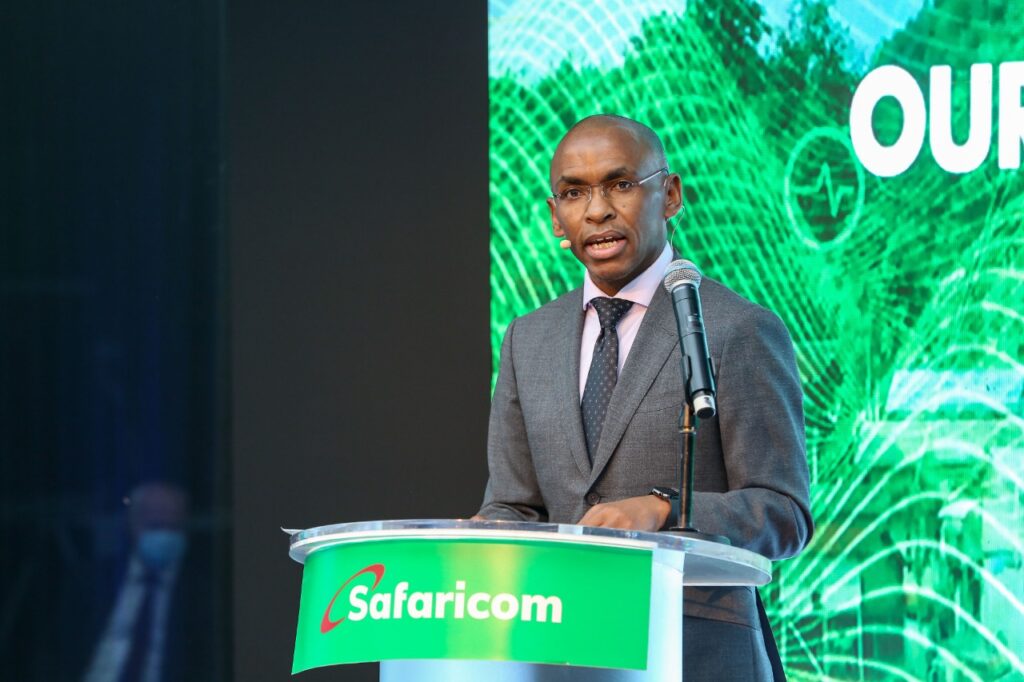|
Getting your Trinity Audio player ready...
|
The Numbers Behind M-PESA’s Success
M-PESA, launched in 2007, is Kenya’s largest and most successful mobile money platform. From March 2023 to March 2024, the service boasted 31.3 million active users and processed over $312 billion (KES 40.2 trillion) in transactions. The platform accounts for nearly half of Safaricom’s total revenue, underscoring its crucial role in the company’s financial performance.
Safaricom’s ability to integrate M-PESA with its telecommunications services has given it an edge in both sectors, which is why the company has strongly opposed any move to separate the two businesses. Additionally, Safaricom has warned that a forced separation could result in a massive tax liability, estimating a potential bill of $582 million (KES 75 billion)—a figure that would surpass its 2023 net profit of KES 52.48 billion.
Regulatory Push for More Oversight
One of the key driving forces behind the push for Safaricom’s separation is the Central Bank of Kenya (CBK), which currently regulates M-PESA. The CBK has argued that separating M-PESA from Safaricom would enhance its ability to oversee mobile money transactions more effectively. Meanwhile, the Communications Authority of Kenya (CA) continues to regulate Safaricom’s telecommunications arm.
The CBK’s position is supported by concerns over Safaricom’s market dominance and the growing need for regulatory clarity in the rapidly expanding mobile money market. By having a standalone M-PESA entity, the central bank hopes to introduce more competition in the sector and improve overall regulatory oversight.
Comparisons with MTN and Airtel: Lessons Learned
The idea of splitting mobile money operations from telecom businesses is not new in Africa. MTN Group and Airtel Africa, two of Safaricom’s largest competitors, have already made similar moves. Airtel Money was separated from its parent telecom in 2021 and has since become the company’s fastest-growing division. MTN also hived off its mobile money operations and later inked a $5.2 billion deal with Mastercard, highlighting the potential financial opportunities that can emerge from such a separation.
However, Safaricom remains unconvinced that such a move would benefit its shareholders. CEO Ndegwa has stated that splitting off M-PESA would not necessarily bring in better valuations, citing examples from MTN and Airtel, where revenue growth was seen, but not necessarily higher market valuations.
The Road Ahead: Holdco Structure by 2025
While Safaricom remains opposed to the idea of splitting M-PESA, the company has announced plans to set up a holding company (Holdco) in 2025. Under this new structure, M-PESA will become a subsidiary alongside other divisions such as voice, data, and messaging services. This organizational shift may address some concerns from regulators while maintaining Safaricom’s integrated business model.
The Holdco structure could also allow for clearer reporting lines, making it easier for the Central Bank of Kenya to oversee M-PESA’s activities without forcing a complete split from the telecom business.
Conclusion: What’s at Stake for Safaricom and Kenya
The revived Information and Communications (Amendment) Bill has reignited debates over market dominance, regulatory oversight, and competition in Kenya’s telecom and mobile money industries. As Kenya’s largest telecom company, Safaricom wields considerable influence, and any move to split M-PESA from its business will have far-reaching consequences.
For regulators and lawmakers, the separation represents an opportunity to level the playing field and improve regulatory oversight. However, for Safaricom and its shareholders, the split presents risks, from potential tax liabilities to the loss of strategic advantages. As lawmakers push forward with the revived bill, the outcome could reshape not just Safaricom, but the entire landscape of mobile money in Kenya.
